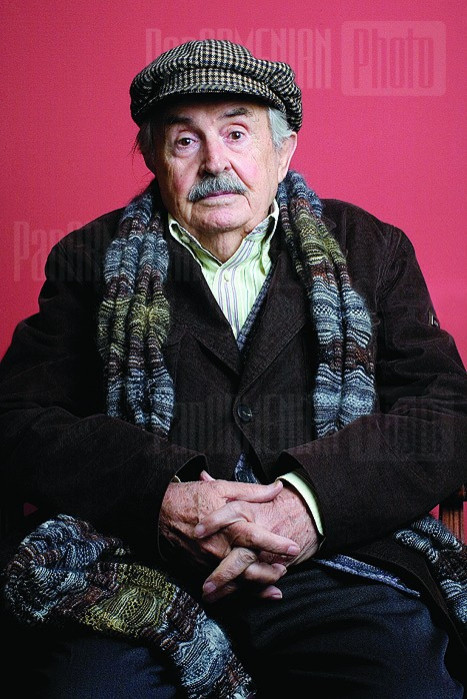Italian Screenwriter Tonino Guerra Dies

The legendary Italian screenwriter and poet, Tonino Guerra, passed away on Wednesday at 92 in his home in Santarcangelo di Romagna, Italy.
Guerra was a major icon throughout the 1960s and early 1970s, Italy's golden age for cinema.
He worked with renowned directors, including Federico Fellini, Andrei Tarkovsky, Michelangelo Antonioni, and Sergei Parajanov, whom he cites himself in the trailer for 3xTonino.
But it was with Antonioni that he was closest. The first film they both collaborated on, L'Avventura, propelled Guerra onto the international film scene in 1960.It is the Guerra-Antonioni relationship that also linked Guerra to Italian neo-realism, a film movement that often centered on expressing the post-World War II Italian morale.
Guerra began and ended his career as a poet.
Captured during World War II, Guerra was sent to a German concentration camp. There he wrote poetry in his home dialect, Romagnole.
After the war, he moved to Rome in 1952 and joined the city's film crowd through good friend, Elio Petri.
The first time Guerra was credited for a screenplay was in 1956 for a film by Giuseppe De Santis called Men and Wolves.
A prolific screenwriter, Guerra devoted his 30s and 40s to working with directors on films, such as Mario Monicelli's Casanova '70, Antonioni's Blow-Up, and Fellini's Amarcord, which all rewarded him with Academy Award nominations.
Guerra also received several honorary awards, such as the lifetime achievement awards at the 1994 Venice Film Festival, the 2002 European Film Awards, and the 2010 David di Donatello Awards.
He was also awarded the Writers Guild of America West's Jean Renoir Award for Screenwriting Achievement in 2011.
The last film he worked on was The Dust of Time in 2008 with director Theodorous Angelopoulos.
The second part of his career, mostly during his 50s, Guerra devoted to poetry.
He saw his work as a screenwriter as a vehicle for transcending his poetry.
Guerra would describe a screenplay as something dead, for which a director, such as Antoniono, would add something, like transcending images.
I believe I have given a little bit of poetry to all the directors I worked with, Guerra once said.
© Copyright IBTimes 2025. All rights reserved.





















